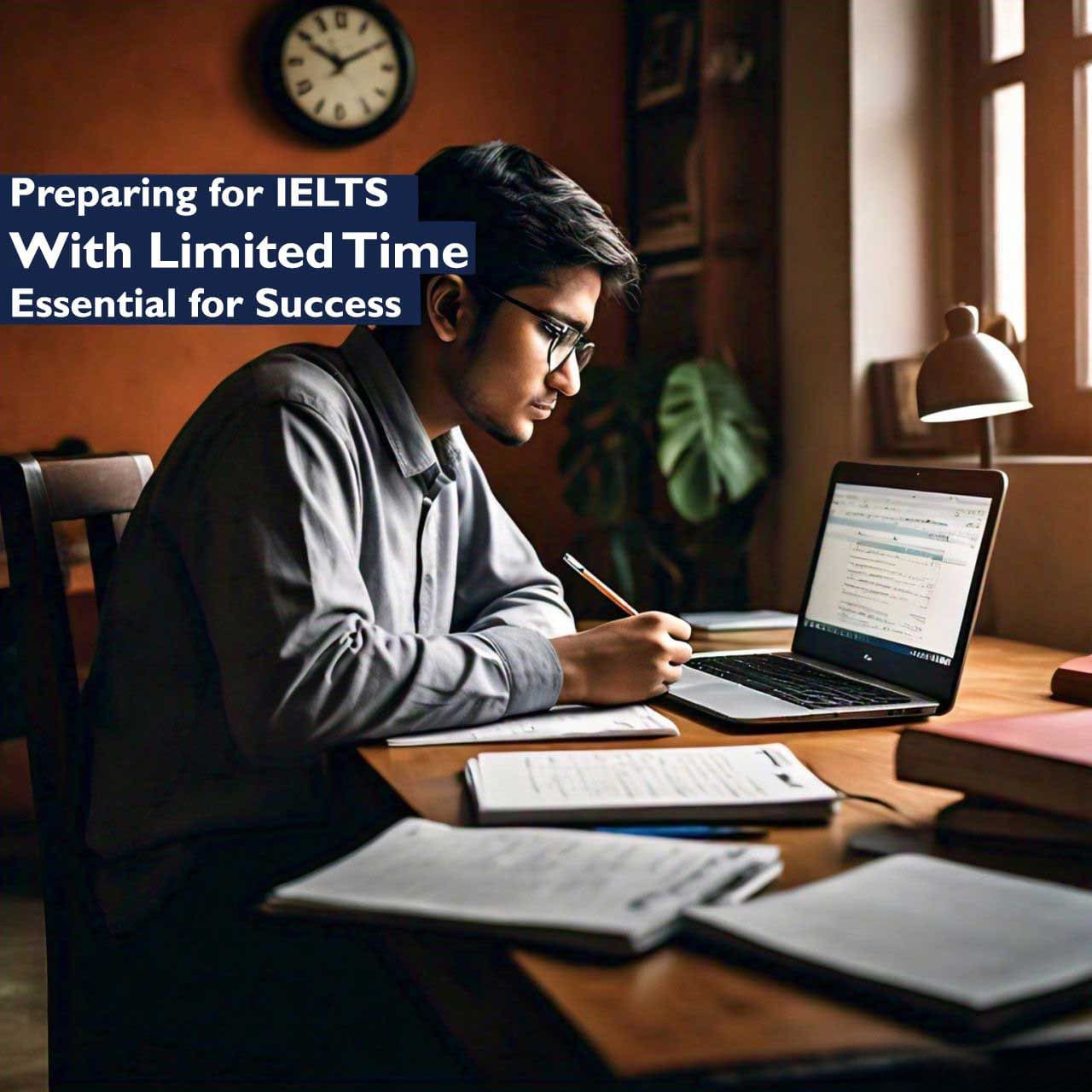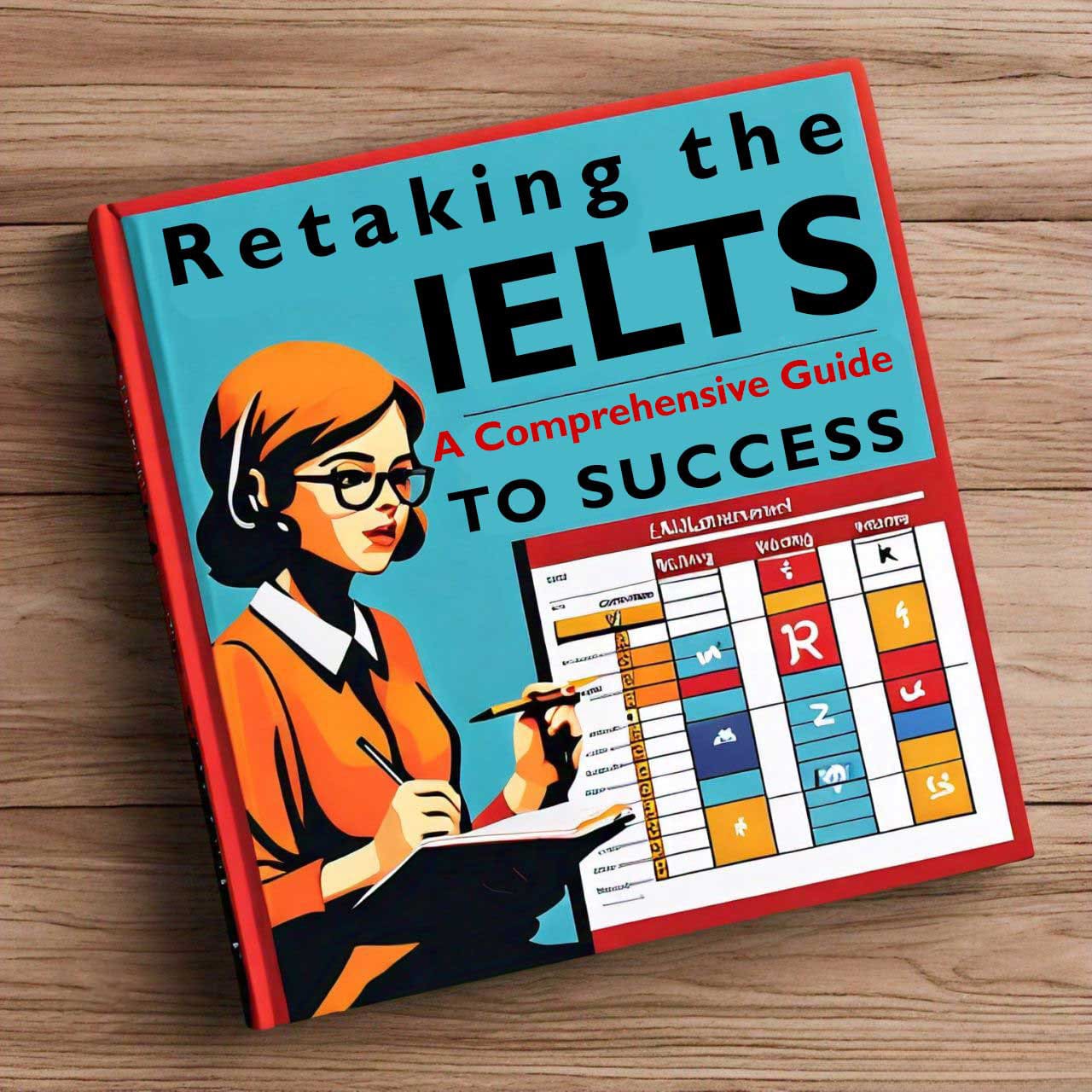Preparing for the IELTS exam can be a daunting task, especially when you’re pressed for time. Whether due to a busy schedule, last-minute decision, or unexpected circumstances, many candidates find themselves needing to prepare for the IELTS exam with limited time. This blog post will provide you with effective strategies to maximize your preparation and achieve your desired score, even on a tight schedule.
Table of Contents
Understand the Test Format
Before diving into preparation, it’s crucial to understand the format of the IELTS exam. The test is divided into four sections: Listening, Reading, Writing, and Speaking. Familiarize yourself with the structure, types of questions, and timing for each section. This foundational knowledge will help you tailor your study plan effectively.
Create a Focused Study Plan
With limited time, a focused and efficient study plan is essential. Here’s how to create one:
1. Assess Your Current Level
Take a practice test to gauge your current level in each section. This will help you identify your strengths and weaknesses, allowing you to allocate more time to areas that need improvement.
2. Set Realistic Goals
Based on your assessment, set realistic goals for each section. Determine the band score you need and focus on strategies to achieve it.
3. Prioritize Key Areas
Focus on the sections and question types that you find most challenging. Allocate more time to these areas while maintaining a balanced approach to all sections.
4. Daily Practice Schedule
Create a daily practice schedule that includes:
– Listening Practice: 30 minutes
– Reading Practice: 30 minutes
– Writing Practice: 40 minutes
– Speaking Practice: 30 minutes
Adjust the times based on your strengths and weaknesses.
Efficient Study Techniques
With limited time, it’s essential to use study techniques that maximize efficiency and effectiveness.
1. Listening Practice
– Use Authentic Materials: Listen to English news, podcasts, and TED Talks to improve your listening skills.
– Practice with IELTS Tests: Use official IELTS listening practice tests to get accustomed to the format and question types.
– Focus on Different Accents: The IELTS listening section includes various accents (British, American, Australian). Familiarize yourself with these to avoid surprises.
2. Reading Practice
– Skim and Scan: Develop skimming and scanning techniques to quickly locate information in the text.
– Practice Different Question Types: Focus on multiple-choice, matching, and true/false/not given questions, as these are common in the IELTS Reading section.
– Time Management: Practice reading under timed conditions to improve your speed and accuracy.
3. Writing Practice
– Task 1 and Task 2: Familiarize yourself with both tasks. For Academic IELTS, practice writing reports and essays. For General Training IELTS, practice letters and essays.
– Use Model Answers: Study high-scoring model answers to understand what examiners look for in terms of structure, vocabulary, and coherence.
– Get Feedback: If possible, have someone review your writing and provide feedback. Focus on improving based on the feedback.
4. Speaking Practice
– Record Yourself: Record your responses to common IELTS speaking questions and listen for areas of improvement.
– Practice with a Partner: If possible, practice speaking with a partner or tutor. This helps simulate the test environment.
– Focus on Fluency and Coherence: Work on speaking fluently and coherently without excessive pauses.
Additional Tips
1. Use Official IELTS Resources
Make use of official IELTS preparation materials, including practice tests, books, and online resources. These materials are designed to closely mirror the actual test.
2. Stay Consistent
Consistency is key when preparing with limited time. Stick to your study plan and practice regularly.
3. Take Care of Yourself
Ensure you get enough rest, eat healthily, and manage stress. A healthy body and mind will help you perform better on the test.
4. Simulate Test Conditions
Take full-length practice tests under timed conditions to get used to the pressure and pace of the actual exam. This will help you build endurance and improve time management.
On Test Day
– Arrive Early: Ensure you arrive at the test center early to avoid any last-minute stress.
– Stay Calm and Focused: Keep calm and stay focused during the test. Use relaxation techniques if you feel anxious.
– Follow Instructions: Listen carefully to the instructions given by the examiners and follow them precisely.
Conclusion
Preparing for the IELTS exam with limited time can be challenging, but with a focused study plan and efficient preparation strategies, you can maximize your chances of achieving your desired score. Understand the test format, prioritize key areas, use official resources, and stay consistent in your practice. By following these tips, you’ll be well on your way to success in the IELTS exam.
Good luck, and happy studying!



